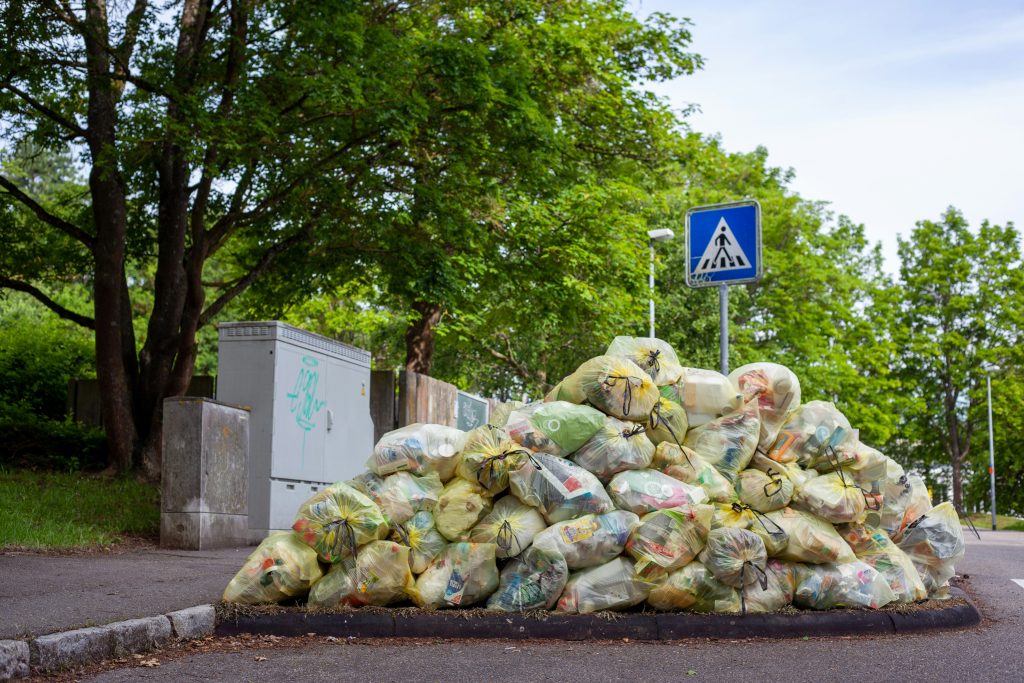By JoAnne Wadsworth, Communications Consultant, G20 Interfaith Forum.
– – –
On June 11, 2025, the G20 Interfaith Forum, in partnership with the Faculty of Protestant Theology and Religious Studies in Brussels, Light of Awareness International Spiritual Family, and International Academy for Multicultural Cooperation, hosted a webinar on “Faith, Food & Future Tech: Aligning AI Innovation with Sustainability and Ethical Values.” The webinar featured Audrey Kitagawa, J.D., President and Founder of the International Academy for Multicultural Cooperation and President of Light of Awareness International Spiritual Family; Professor Medlir Mema, Director of the AI Governance program at the Global Governance Institute and an expert in international relations from Brigham Young University-Idaho; Dr. Maria Kotidou, a food scientist specializing in research and innovation within food systems; and Lana Saric, an intern at the Faculty of Protestant Theology and Religious Studies studying economics and finance. The session was moderated by Dr. Elizabeta Kitanovic, Professor of Human Rights Law at the Faculty of Protestant Theology and Religious Studies.
Dr. Kitanovic opened the webinar by emphasizing the timely nature of the conversation, noting how AI continues to reshape industries from food systems to global governance while raising profound questions about technological innovation’s alignment with moral responsibilities. She referenced the UN Pact for the Future and the EU AI Act as examples of efforts to forge ethical frameworks for AI governance, setting the stage for an exploration of how artificial intelligence intersects with ethical frameworks, sustainability goals, and faith-based values.
Audrey Kitagawa
Audrey Kitagawa began by establishing the historical role of faith communities in addressing hunger and poverty, drawing from various religious traditions to demonstrate the universal commitment to feeding the hungry. She noted that according to the UN Committee on Food Security, the world produces enough food to feed 10 billion people, yet close to a billion people go hungry due to conflicts, political policies, displacement, and climate change rather than actual food scarcity.
Kitagawa emphasized the importance of incorporating diverse perspectives, including indigenous wisdom, into AI development for food systems. She explained that large-scale industrial farms generate high yields but are responsible for soil degradation and biodiversity loss, while small rural farms contribute to local food security through more environmentally sustainable practices but require greater labor and higher costs. She advocated for making technological advances more accessible to smallholder farms, which already produce about one-third of the world’s food.
“AI innovations and solutions must be founded on fairness, ethics, morality, and sound values. In essence, a human-centered approach.”
Drawing from Pope Francis’s encyclical Laudato Si’, Kitagawa connected environmental stewardship with social justice, arguing that everything is interconnected and that concern for the environment must be joined with sincere love for fellow human beings. She stressed that the deployment of new technologies must be managed responsibly, mindful of the environment, ethics, human rights, and social justice, while ensuring that the wisdom of indigenous peoples is considered in environmental policy development.

Professor Medlir Mema
Professor Mema framed the discussion within the context of global governance, referencing the UN Summit of the Future held in September 2024, which brought world leaders together to address climate change, inequality, and digital disruption. He questioned whether artificial intelligence would help achieve sustainable development goals or actually undermine them, noting that while AI holds promise for smarter agriculture and cleaner cities, it also carries risks including soaring energy demands and concentration of power among tech giants.
Mema detailed the outcomes of the UN Summit, including the Pact for the Future and Global Digital Compact, which outlined ambitious goals for AI governance including an international scientific panel on AI, global dialogue on AI governance, and an AI office at the United Nations. He explained how these developments respond to both opportunities and challenges facing the international rule-based order and the failure to adequately address global disparities.
“The question is not whether AI can help, but rather whether it will, under current governance models, deliver the outcomes we need, especially for the most vulnerable.”
Highlighting a critical tension, Mema discussed how the growing demand for energy to support large data centers is creating competition with agricultural needs. He cited examples from Latin America where $10 billion investments in data centers have coincided with water rationing for farmers, leading to crop failures. This paradox illustrates how AI, which is needed to make agricultural processes more efficient, simultaneously diverts resources away from food production, creating what he described as a fundamental challenge for sustainable development.
Dr. Maria Kotidou
Dr. Maria Kotidou presented striking statistics about global food waste, explaining that 1.3 billion tons of food are lost or wasted annually—one-third of all food production. She distinguished between waste patterns in high-income countries, where overconsumption leads to waste at the consumer level, and lower-income regions like sub-Saharan Africa, where food loss occurs earlier in the supply chain due to limited infrastructure and poor storage facilities.
Kotidou detailed the broader implications of food waste, noting that more than 343 million people face acute hunger while nearly 9 million people die from hunger annually, including 3 million children. She explained that food waste uses land area larger than China each year, consumes 25% of agricultural water production, and when food goes to landfills, it releases methane accounting for 8-10% of global emissions—more than the entire aviation industry.
“Imagine we are preparing a nice meal and then throwing immediately a third straight on the trash. That’s essentially what we are doing globally.”
As a food scientist, Kotidou outlined various approaches to creating more sustainable food systems, including responsible sourcing, reformulating products with lower-impact ingredients, limiting over-processing, and developing packaging that extends shelf life. She highlighted innovative approaches like transforming food waste into value by extracting fibers from orange peels or using proteins from the dairy industry, contributing to a circular economy. She connected these scientific approaches to religious and cultural values, noting how practices like fasting in various traditions invite reflection on our relationship with food and remind us to show restraint and gratitude.

Lana Saric
Lana Saric focused on the emerging field of emotion AI in human resources, describing how artificial intelligence is increasingly used to analyze facial expressions, voice patterns, and even micro-movements during job interviews and workplace monitoring. She explained that emotion AI, also known as affective computing, teaches machines to recognize, interpret, and respond to human emotions, but raises serious questions about privacy, bias, and manipulation since emotions are complex and context-dependent.
Saric highlighted concerning examples of algorithmic bias, including a Belgian case where a hiring algorithm favored people from wealthy suburbs over diverse neighborhoods based on IP addresses, and instances where automated systems stopped hiring women entirely for certain roles after learning from biased historical data. She noted that these aren’t just technical issues but ethical ones, particularly when the stakes involve human employment and dignity.
“To be seen is not to be known. So we might detect someone’s sadness, but that doesn’t mean we understand their story. And no system, no matter how advanced, can replace the depth of real human connection.”
Drawing from her perspective as a young person entering the job market, Saric described the overwhelming nature of keeping up with AI developments while acknowledging their inevitability. She emphasized that while emotional AI can detect stress or sadness through physical indicators, it doesn’t actually feel anything—it calculates. She called for clear ethical guidelines, transparency in algorithmic decision-making, and safeguards against bias, stressing that if emotional technologies enter the workplace, they must be governed by principles protecting human dignity, privacy, and freedom.
Q&A and Discussion
The panelists addressed questions about faith communities’ roles in global AI conversations and the integration of faith-based values with technological innovation. Kitagawa emphasized that faith communities provide on-the-ground services but can either facilitate or impede global initiatives, as demonstrated in vaccination campaigns where cooperation with faith leaders proved instrumental. She also referenced UNESCO’s recommendations emphasizing that human dignity and rights must be essential throughout AI systems’ lifecycle.
Mema addressed concerning trends toward AI deregulation in both the US and EU, noting a proposed 10-year moratorium on AI legislation in America at a time when guardrails are most needed. When asked about priorities for African governments developing national AI strategies, he recommended focusing on eliminating data bias, ensuring transparency to prevent digital authoritarianism, and considering sustainability in data sovereignty initiatives.
The discussion covered practical implementation of sustainable food practices in religious communities and the importance of AI literacy education. Mema highlighted Japan’s collaboration with Microsoft to train three million high school students in AI literacy as an example of national-level preparation. The panelists discussed how religious traditions offer wisdom for technological challenges, from indigenous environmental relationships to practices of fasting and gratitude, emphasizing that sustainable food systems require both scientific innovation and values-based approaches that connect food production to compassion and care.
Conclusion
The webinar concluded with unified calls for human-centered AI development. Kitagawa emphasized that AI must include appropriate oversight to ensure human rights protection. Mema warned about the paradox of AI requiring resources that compete with food production while being needed for agricultural efficiency. Kotidou stressed that sustainability requires both scientific innovation and compassion-based approaches. Saric called for protecting human dignity in an age of increasing technological surveillance. The panelists agreed that addressing faith, food, and technology intersections requires interdisciplinary collaboration engaging diverse cultures and values to ensure sustainable and ethical technological development.
– – –
JoAnne Wadsworth is a Communications Consultant for the G20 Interfaith Forum Association and Editor of the Viewpoints Blog.


